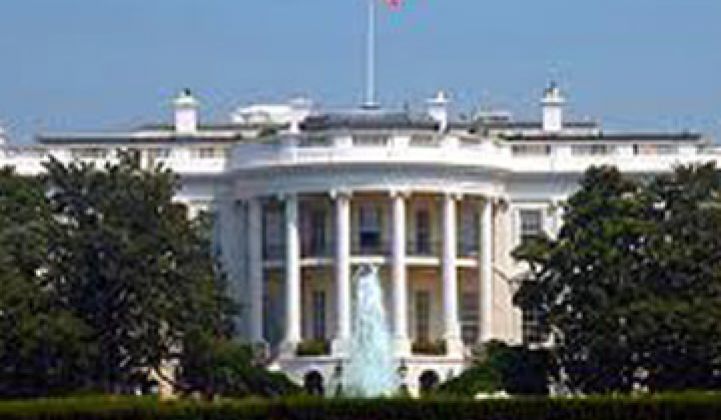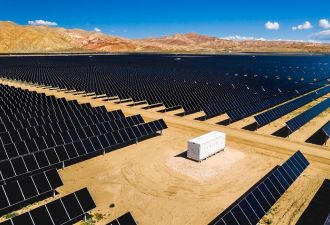At the National Policy forum, held in Washington, D.C., Mike Eckhart, president of ACORE, asked, “Will clean energy win? If so, how and when?”
Despite, or possibly because of, a reorder of power in the House and Senate, many said that while clean energy faces challenges, it will and already is winning. The consensus was that if America cares to solve its problems of unemployment, energy dependence and yes, for a silent majority, climate change risk, we can expect much more momentum around clean energy policy and deployment over the next two years.
And while we didn’t walk away with an instantly memorable message like “Yes, we can!” or “Drill, baby, drill!” we did capture some themes that folks on the left, right and center can all agree on.
First, clean energy is the future. It’s the future of our economic growth, sustainable energy infrastructure and sustainable ecosystems.
Second, we are entering a new era of a sustainable industrial revolution. New jobs and economic opportunities stem from new technologies that move from R&D to deployment to scale.
Third, we are in an era of unprecedented innovation. “Energy has historically been the most innovation-resistant part of our economy,” according to Gary Locke, Secretary of Commerce. With the advent and incredible growth of a number of clean energy technologies, this notion is turned on its head.
And finally, there is no silver bullet. We are entering an era of a rich, diverse creative energy future with many different ways to produce electrons. When it comes to energy, one size does not fit all for any particular state or community. (Editor's note: this is the fifth in a series of articles from various authors calling for greater unity among renewable interests in dealing with Washington. You people should all get together. If you don't, we will sponsor a Texas Death Cage match among you to pick a leader.)
Know your audience
In Eckhart’s editorial in the Washington Post, “Standing Up for Clean Energy,” he talks about the clean energy glass as half empty but getting fuller while older sources of energy have a glass half full but getting emptier. Denny McGinn, a retired U.S. Navy Admiral, referenced a report put together by the military advisory board, which concludes that America’s energy posture constitutes a serious vulnerability that is exploitable by enemies. He went on to say we have been wasting time by not taking a more aggressive approach and that the potential for grievous harm grows each day.
Denis Hayes, president of Buillitt Foundation and coordinator of the first Earth Day in 1970, came at the clean energy topic from a climate-change point of view. While climate science carries uncertainties and baggage, there were a couple of facts he said we could be sure of. Two hard facts are the concentration of CO2 in the atmosphere, which just passed 393 parts per million, and the upper limit of 450 that scientists say will lead to perilous consequences if nothing is changed. He recognized that when faced with such bad news, people tend to move into denial, and the climate argument needs an element of “Yes, we can” (turn things around), but it will take nothing short of heroic actions as a species.
Representative Roscoe Bartlett, representing the sixth District of Maryland, summed it up best by suggesting that three disparate groups lock elbows and march hand-in-hand towards a clean energy future. These three groups have a wide diversity of beliefs and arguments for clean energy but the key point, which can be lost on the left and the right, is that clean energy solves each group’s chief concern regardless of the premise. The three groups are the energy independence camp, the peak oil camp, and the climate change camp.
While the energy patriots largely have an allergic reaction to the idea of climate change, energy independence is imperative to removing a major vulnerability that can be exploited by those who don’t like us. For those concerned that the U.S. has passed peak oil production and soon the world will do the same, clean energy is critical to maintaining and even improving our quality of life. For those whose chief concern is climate change, clean energy, again, is the path forward.
The magic in bringing all these groups together is in the message. The first lesson in communication is to know your audience and this applies critically to the topic of clean energy. Proponents of clean energy would do themselves a service by understanding the dispositions of those they seek to influence.
The message from this week’s ACORE event is clear: a fresh dialogue is needed on clean energy, one that brings everyone who cares about energy security, quality of life and climate under the tent of a clean energy future.
***
Kimberly Kupiecki is a senior vice president at A&R Edelman.



